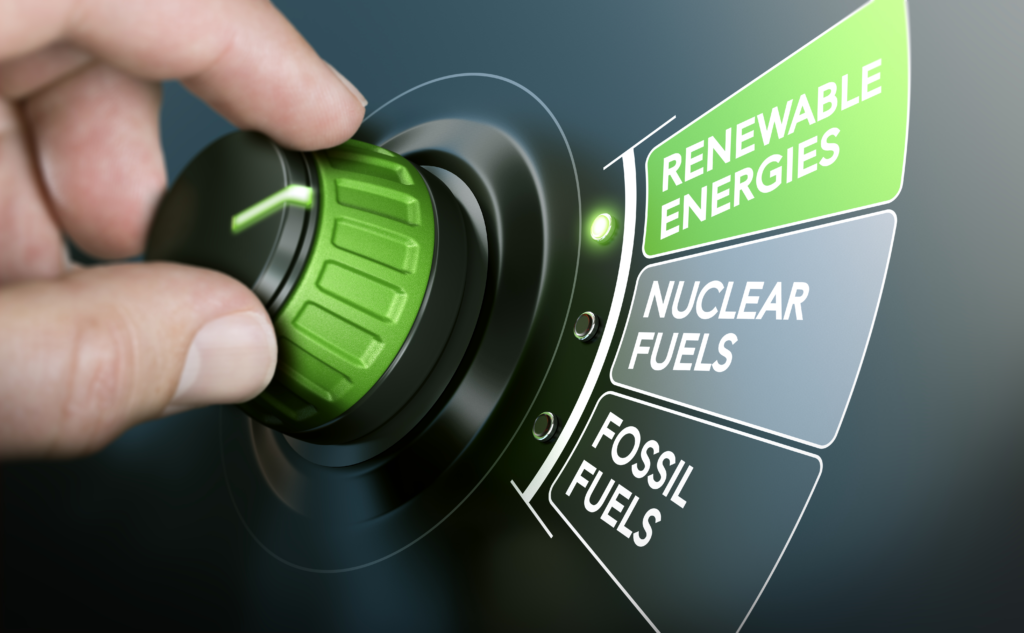Is your energy strategy greenwashing?

Over the last few years, companies have jumped into the climate fray with gusto, announcing net-zero commitments and speaking ardently about doing their part.
But talk is cheap, and decarbonization is difficult. While a third of the world’s largest companies have net zero goals, only 7 percent of those companies are on-track to meeting them. The rest either, either intentionally or not, are greenwashing.
This week, a United Nations-sponsored panel took aim at greenwashing, creating a framework for what a credible net-zero emissions plan looks like. The report, “Integrity Matters: Net zero commitments by businesses, financial institutions, cities and regions,” outlines the best thinking of 17 climate experts from around the world.
The outcome is 10 recommendations that could be used as a rubric for how seriously a company is taking its climate pledges and, hopefully, bring more integrity and trust to climate commitments across the board.
“This is about cutting emissions, not corners,” said Catherine McKenna, chair of reports panel and former Canadian Minister of Environment and Climate Change. “Our roadmap provides clear standards and criteria that must be followed when developing net zero commitments. Right now, the planet cannot afford delays, excuses, or more greenwashing.”
As a person that spends a lot of time talking to companies about their commitments, the list is a useful tool to assess the quality of claims. Recommendations range from accountability through having short-term, quantifiable milestones, to aligning lobbyists with climate objects.
One of the recommendations focuses on energy, and the authors do not mince words.
“Non-state actors cannot claim to be net zero while continuing to build or invest in new fossil fuel supply,” the report says. “Net zero is entirely incompatible with continued investment in fossil fuels.”
Here’s what it takes to have an energy strategy aligned with net zero.
Stop with the fossil fuels
Bill McKibben did our math homework in 2012: the combination of our existing, planned and approved fossil fuel infrastructure will blow our carbon budget. This math was double checked by the International Energy Agency (IEA) and the Intergovernmental Panel on Climate Change (IPCC).
There is simply no room for new investments in fossil fuels in a net zero future — including natural gas and liquid natural gas (LNG). Yet when I talk to companies and investors about the imperative to phase out fossil fuels, it often becomes a conversation about how that’s impractical or fruitless — not what it would take to make it a reality.
According to the report, credible net-zero strategies would include:
- Specific targets to end the use and support of fossil fuels, in line with the IPCC and IEA net-zero modeled pathways. The goal: a global 50 percent decline by 2030;
- The phase out of coal for power generation in developed countries by 2030, and retire all plants on schedule;
- And the end of oil and gas company exploration, expansion and, eventually, production of oil and gas.
While this may sound obvious, many organizations are doubling down on operations powered by gas, and counting it as a climate win. Of the major oil and gas companies, 19 have some form of a “net-zero goal” — yet all have plans for continued exploration of oil. In the U.S., 40 coal-fired power plants that were slated to close will run longer than expected. The utility AES (which has a net-zero goal) just announced it will convert a coal plant to gas, instead of replacing it with solar and energy storage, citing costs.
All of these transition delays and headwinds spell trouble for corporations’ Scope 2 targets across the U.S. and are counter to a net-zero future.
Double up on renewable energy
The transition away from fossil fuels will only work if it is paired with the scaling up and mobilization of renewable energy finance. For corporations, this means doubling down on corporate procurements.
While corporate procurements have done relatively well compared to the proliferation of other climate solutions, the pace of deployments have slowed. The latest quarterly report from American Clean Power Associates shows that wind deployments are down 78 percent from last year, and utility-scale solar is down 23 percent.
The slow down is attributed to inflation and supply chain problems. The added complexity and cost are enough to inspire some companies to delay clean energy targets, especially with the Inflation Reduction Act promising some financial relief down the road.
This report makes clear that now is the moment to accelerate solutions — even with headwinds. Delaying projects is delaying decarbonization, which will make these chaotic times worse, not better. Navigating this complexity is what it means to have a true net-zero goal. If addressing the climate crisis were easy, everyone would do it.
Further, a transition to clean energy means economies and energy security are less vulnerable to geopolitical shocks and crises. While it may be tricky to figure out how to accelerate the transition during turbulent times, it is exactly because of these times that the transition must accelerate.
As climate action permeates corporate-speak, new frameworks for accountability are critical. But empty promises may be worse than nothing, giving the false impression that adults have the situation under control. Nothing is more dangerous than a crisis that people assume someone else is handling.

